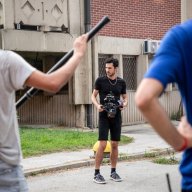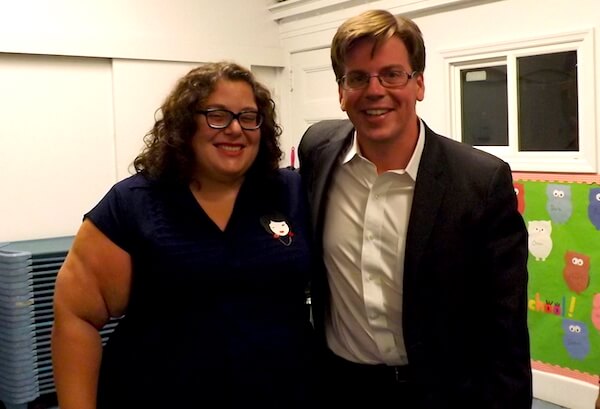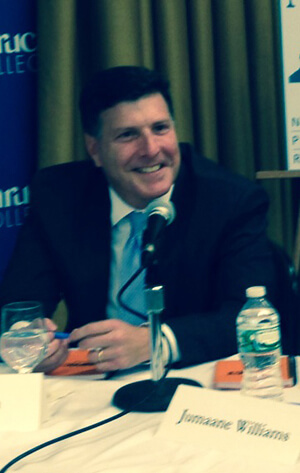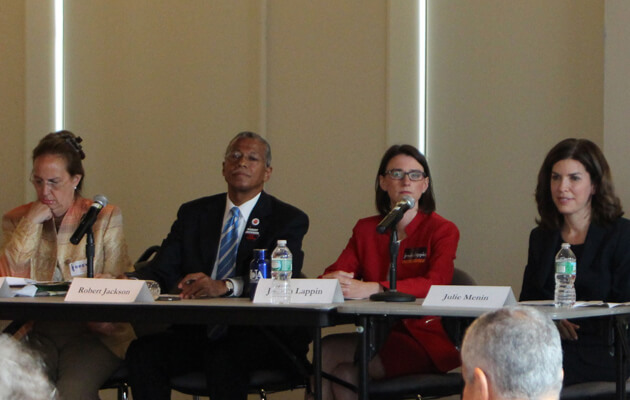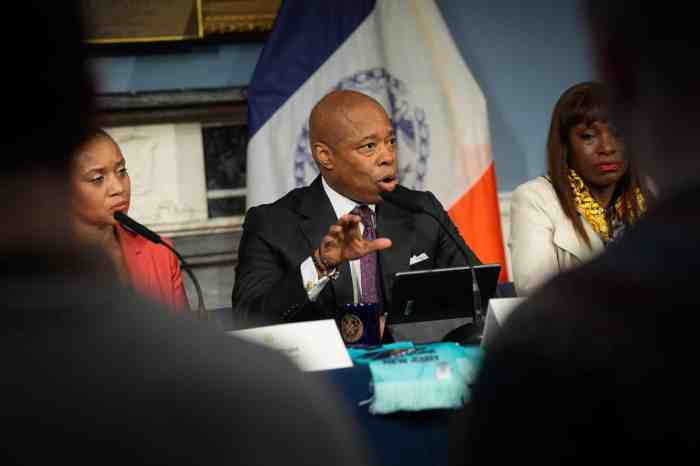BY RACHEL BLOOM | When looking at the extremely low voter turnout for New York City’s recent primary election, one wouldn’t know that city residents were deciding who would run for mayor this year. It is clear that New York needs to do more to encourage voter participation and competitive elections.
While the need is evident, what is lacking is the political will to change the status quo and breathe new life into our politics. That’s why this November, New Yorkers must take control themselves and vote to hold a state constitutional convention to introduce much-needed reforms that make it easier to vote, reduce the power of incumbents, and level the playing field.
In this year’s primary, just 14 percent of New York City’s eligible voters turned out to vote. Dismal, yes, and sadly on trend with previous years. In 2016, eight percent of eligible city voters voted in June’s federal primaries and 10 percent voted in September’s state and local primaries.
PERSPECTIVE: A Choice on November 7
What’s behind these low numbers? First and foremost are difficulties New Yorkers have getting to the ballot. New York has no early voting and no Election Day registration and it limits access to absentee ballots, which means that all voting must happen in person, on a work day.
Laws governing voting in primaries are even more restrictive. Not only does a voter need to be registered with a political party before being able to vote, but New York also doesn’t allow citizens to register or switch parties on election day. And the cut-off deadlines to do so are absurdly early. First-time voters must register with a party 25 days before the election. Those who want to switch their affiliation must do so 25 days before the general election of the year before the primary they plan to vote in, by far the longest deadline in the entire country. (Some New Yorkers may remember that this is also why Donald Trump’s children were unable to vote for him in our state’s primary.) These rules mean that the deadline for new voters this year or those who want to change their party for next year was October 13.
With voting so difficult, it’s also no surprise that voters don’t care to turn out, especially when most elections are noncompetitive and feature an incumbent heavily favored to win. Perhaps that’s why city voters didn’t show up in the September primary. With a decision between an incumbent mayor with low approval ratings and a long-shot challenger, why even bother to make time to go to a polling station?
Voters see the same names, faces, and ideas year after year, in part because elections in New York have become a race for dollars. Rules that treat limited liability corporations as individuals allow special interests and wealthy donors to pour money into elections, making the cost of mounting a campaign exceedingly expensive and discourage anyone but an incumbent. Public financing of elections, like we have in New York City to great acclaim, would also benefit first-time candidates, but there isn’t a statewide system, meaning that many would-be challengers are shut out.
Several commonsense proposals would energize our politics and allow new faces in the room — enacting term limits, allowing early voting, and lowering maximum campaign contributions are just a few reforms that New York needs. Despite these obvious solutions, legislators have been unwilling to enact any changes. Perhaps not surprising when the current system makes it easier for those in power to stay in power.
For the first time in 20 years, these solutions can be created outside of the legislative process and passed without the interference of legislators. New Yorkers must seize the once-in-a-generation opportunity provided by the constitutional convention and pass these much-needed reforms that will make our elections more dynamic and include more voices in the process.
With Albany unwilling to act, change must come another way, and that way is a constitutional convention. New Yorkers must vote yes on November 7 to fix our broken democracy.
Rachel Bloom is the director of Public Policy & Programs for Citizens Union. In the October 12-25 issue of Gay City News, Nathan Riley made the case against the constitutional convention (gaycitynews.nyc/time-constitutional-convention).








